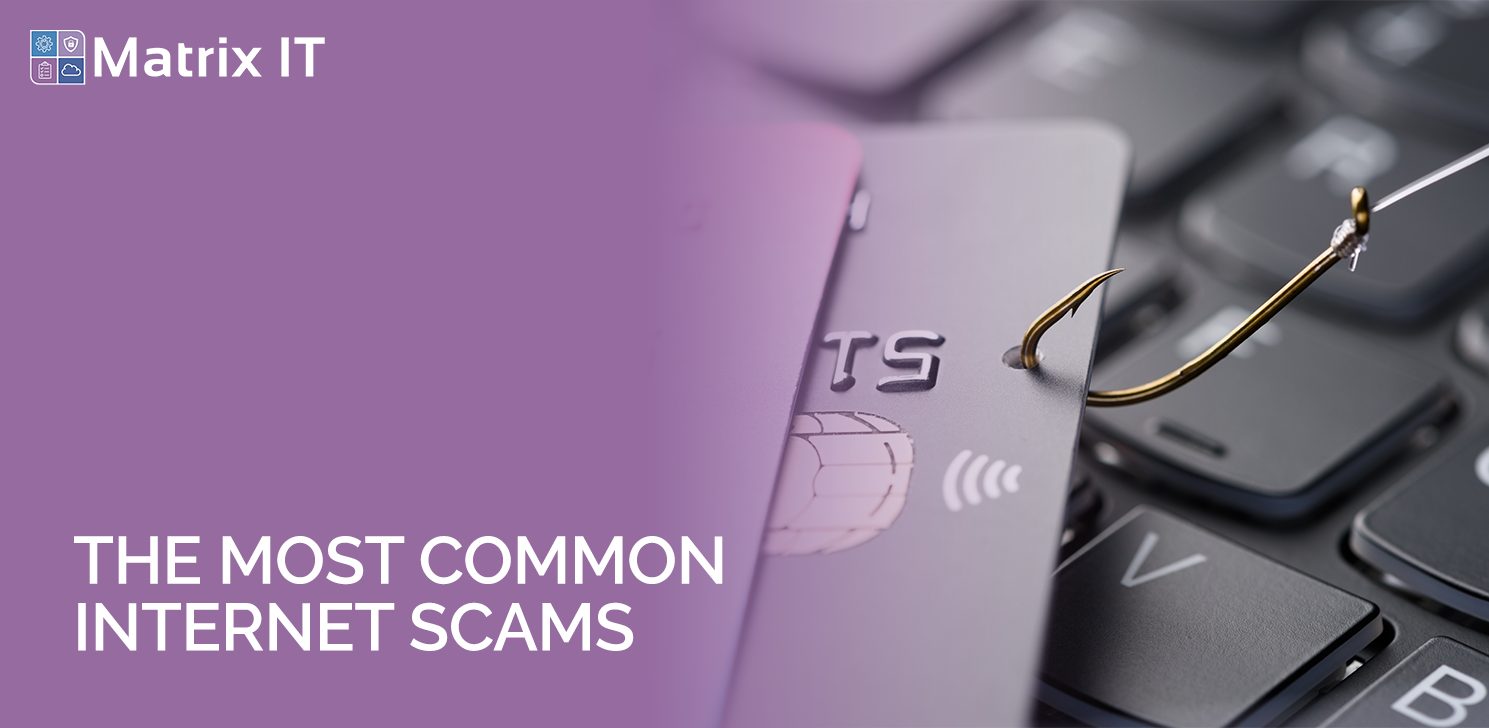
Some believe that if they live a normal enough life cyber-crime can’t affect them, but the truth is it can happen to anyone and once a cyber-crime has occurred it can be hard to recover. The nature of internet scams can change over time, so it’s essential to stay informed about current threats.
Below are some of the examples of common internet scams.
Common Internet Scams
Tech Support Scams
Tech support scams are a type of fraud where scammers pose as legitimate technical support representatives to trick people into giving them access to their computers, stealing personal information, or paying for unnecessary and costly tech support services. These scams typically involve unsolicited phone calls, pop-up messages, or emails that claim to be from popular tech companies like Microsoft or Apple. The scammers often use scare tactics to convince their victims that their computer is infected with a virus or malware, and offer to fix the problem for a fee. It is important to remember that legitimate tech support companies will never contact you unsolicited, and will never ask for payment or access to your computer without your explicit permission.
Nigerian Letter Scams
Also named 419 fraud or the advance fee scam, this is known to be one of the oldest online scams. Someone who is targeted with this scam will receive a message from an unknown party claiming that they’re someone of importance (i.e., someone wealthy, a businessperson, etc.) and in this message they’ll ask their victim to help them with transferring a large amount of money, most likely transfer it out of the country. The scammer will promise a portion of the money in exchange for their help and in some cases even produce fake paperwork to make the scam look even more legitimate.
Phishing Scams
One of the most common scams, Phishing involves fraudulent emails or websites that impersonate legitimate organisations to trick people or businesses into revealing sensitive information like usernames, passwords, or credit card numbers. Phishing can be done in a number of ways but one for example, is when scammers make you think that an account of your has been hacked and they only way to fix it is to give out personal information so that your protected, they will create a sense of urgency to so that you hand over details without thought.
Fake Help With Debt
Fake debt help scams are schemes that prey on people who are in financial distress and are seeking assistance to reduce their debts. These scams often promise to eliminate or significantly reduce credit card debt, medical bills, or other outstanding loans. However, their real intention is to steal money from unsuspecting victims. Some fake debt help scams involve charging upfront fees for services that will never be delivered, while others may ask for personal information such as bank account details or social security numbers, which can be used to commit identity theft.
Social Media
Social media scams are fraudulent activities that occur on social media platforms. They are designed to deceive users into giving away their personal information, money, or access to their social media accounts. Scammers use various tactics to trick users, such as creating fake accounts, offering fake giveaways, or impersonating celebrities or well-known brands. Social media scams can lead to financial loss, identity theft, and other serious consequences.
Dating Scams
Scammers will often create fake online profiles on dating sites to form relationships with their victims, then after some time, they will ask their victim to send them money for various reasons, such as medical emergencies or travel expenses which they will be tempted to do, because they have since grown to care for the scammer. People have lost thousands to these kinds of scams and the average amount known to be lost by victims is £8,000+.
To protect yourself from internet scams, make sure you never give out your personal information to anyone you don’t trust, use strong passwords, and always be cautious when clicking on links or downloading software. Remember, if something seems too good to be true or feels wrong, it probably is!
By understanding what the most common scams are, they become easier to notice and avoid. Nevertheless, if you think that you’ve fallen victim to one of these scams or others, your systems could be exposed!
Don’t wait for it to become a bigger problem, contact the experts today by email or call 01329 888444.









